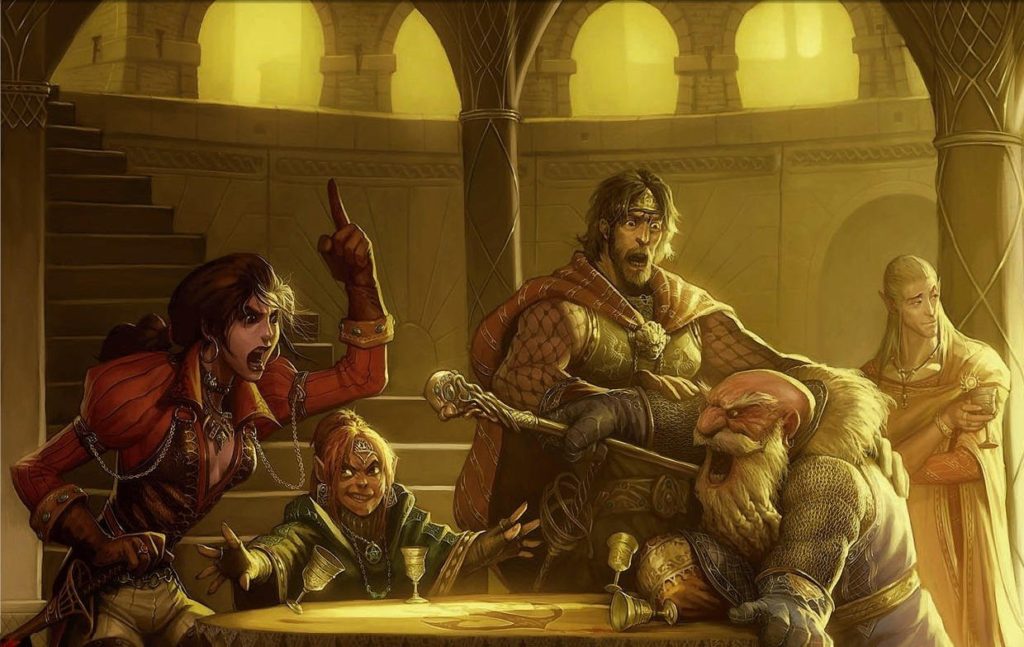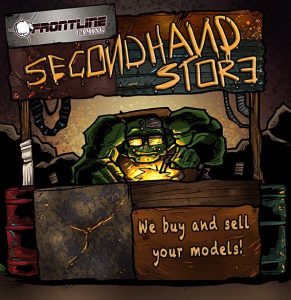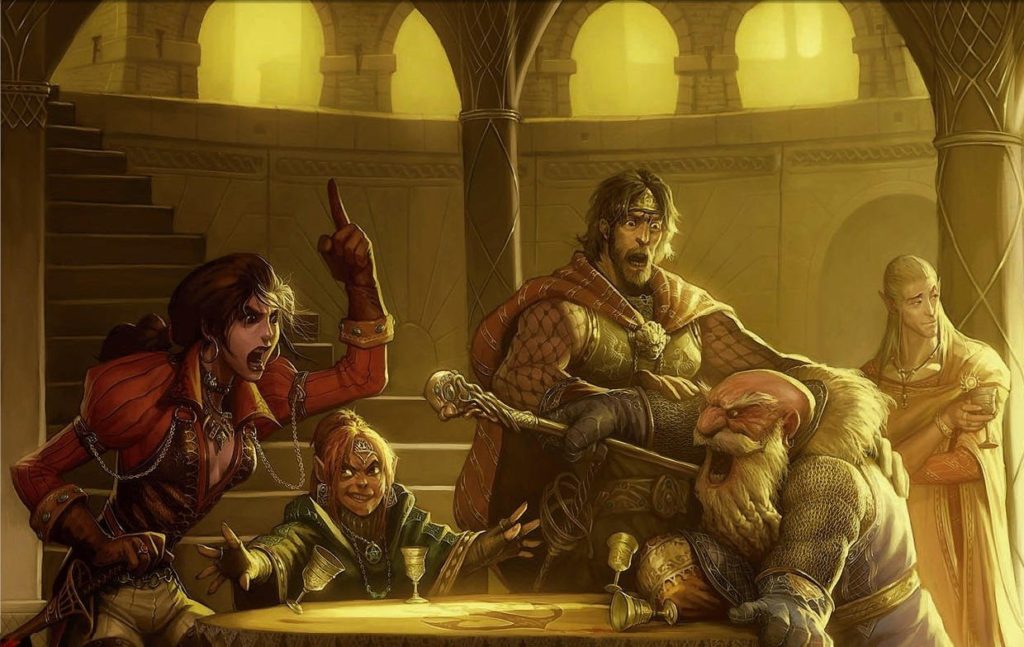“Parting is such sweet sorrow,” sayeth the bard, but clearly not as sweet as Mountain Dew Gamer Fuel.

What is the right way to enjoy Dungeons and Dragons?
It’s a legitimate question to ask, because the game itself has many aspects to it that people can take an interest in. We often describe it as a kind of communal improv, and certainly that is an aspect of it- acting out scenes, creating a story on the fly, and responding to the cues of your group are a big part of D&D. But there’s also many other aspects as well; D&D is part board game, with a map and pieces that we move around in tactical combat to try and defeat combat encounters. It’s also part story drama, where we craft interesting histories and narrative arcs that we want our characters to go through. It’s part power fantasy, allowing us to do things in the game that we could never hope to achieve in real life. And it’s part social activity, an excuse to hang around with friends and chat with them in a shared context.
Each of these different things can be part of a game of D&D, and most of us will enjoy some or all of them in different measures, depending on our personal preferences. A given player might be particularly attached to the combat board game and social activity parts of D&D, for example, but less so the improv part. Part of the challenge of building a group is finding ways to balance these different interests in a way that makes everyone happy, and perhaps even opens them up to experiences they hadn’t previously considered- a story-driven player can be brought to see the joy of the power fantasy, for example, or a combat character the fun of simply exploring strange vistas.
However, there does come a breaking point, where players’ interests are simply too divergent to mesh effectively. If one of your players is on their phone any time that the initiative order isn’t up and one of the others has actively avoided learning how combat works, those two are just not going to be very compatible in the game no matter what you do. By all means, give them a chance and try to get them to come around to see the fun in other ways of doing things, but at the end of the day it is up to them whether they enjoy any given part of the game. And that’s fine!
But when it comes to putting together a gaming group, it does mean that those two players are probably not compatible with each other, even if they are friends outside the context of the game. Making sure that the play styles of everyone at the table can intermesh without leaving anyone out in the cold is an important consideration for any gaming group, and it is very possible that some people simply won’t have fun when playing the game together. That isn’t an attack on any of those players or a sign that you need to stop being friends with them, only that for the purposes of this activity they are better off not being together. Some people get motion sick when they go on roller coasters; you can still be friends with those people if you enjoy roller coasters, you just have to recognize that there are some activities the two of you can’t share.

Fault Lines
Of course, there are also situations where the problems can run deeper than that- some players may have personal issues with each other and just can’t get along. This is an unfortunate reality of friend groups, that some people just don’t interact well. Again, this need not be a condemnation of anyone in particular, but such friction will kill the spirit of a game faster than just about anything, so it’s very much worth keeping an eye out for.
Similarly, some players may not be able to regularly make the scheduled time for games- because of erratic work hours, family obligations, personal health issues, etc. All of these are perfectly understandable, as no one should be asked to put a game of pretend elves ahead of something like taking care of their parents or a child. But once again, we need to recognize the reality of the situation- a player who is canceling the game on a regular basis can be very disruptive to the play experience and, depending on your group’s dynamic, may simply not be compatible with what you want to do.
For any of the above reasons we’ve discussed, it may be necessary for you to part ways with a member of your play group. As with almost all things in roleplaying games, good communication will nip most such problems at the bud. If you’ve talked to them about the problem before and tried to resolve it other ways, it should not come as a big surprise to them when you take the final step. And hopefully, the choice is a mutual one- they should understand as well as you do what is going on and why the gaming partnership simply isn’t working out. You may still be able to play other kinds of games with them and you should still remain friends with them, but with all of us having limited time on this planet together it’s a mark of respect that everyone can admit that some arrangements simply aren’t working out and need to be dropped.
Remember, you can get your roleplaying supplies at great discounts every day in the Frontline Gaming store, whether you’re looking for some new sourcebooks or a mini for your next encounter.



Good article, I think this community in general has a hard time communicating to each other when things just aren’t working out. Especially when you play amongst friends and friends of friends.
The opening line is gold, lol